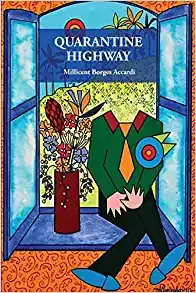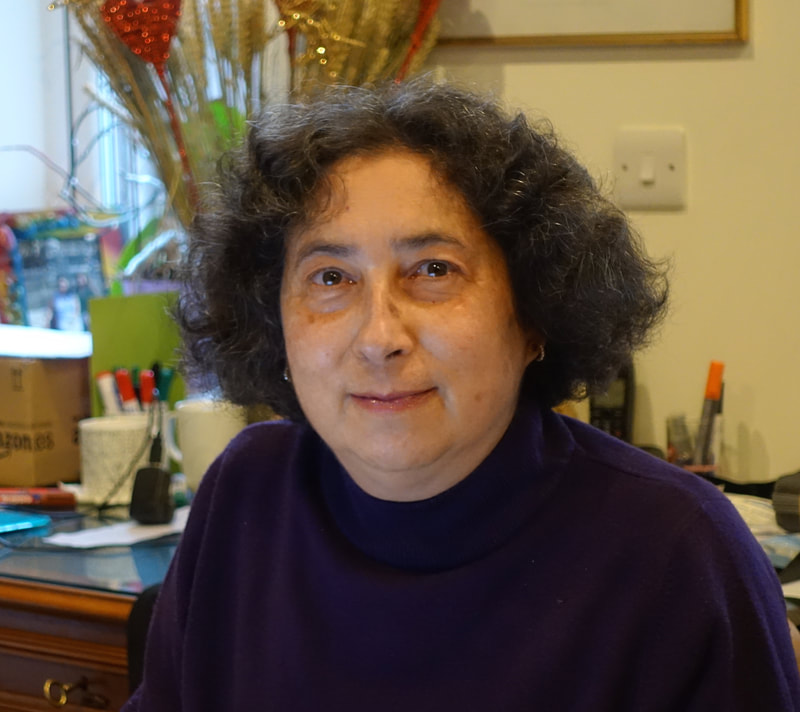Quarantine Highway
Reviewed by Carla Scarano D'Antonio
|
|
The uncertainty created by the pandemic and the fear of Covid infections resonate in Accardi’s poems, reiterating the anxiety caused by isolation as well as the hope of surviving and starting anew. The poems are deliberately situated in a community of poets, a network that literarily connects most of her pieces to other poets’ lines. The poets referred to are José Tolentino Mendoça, Alexis Smithers, Nuno Júdice, Inês Fonseca Santos, Margarida Ferra, Carlos Matos, José Angel Araguz and many others. These connections support the poet in her difficult journey through and out of the Covid experience, an experience that is marked by grief, anger, worries, occasional hopeful moments and eventually provisional healing. Absence and loss characterise everyday situations in an insecurity that does not answer to the poet’s questioning. We do not know what is happening and how it will end. Covid seems to be a ‘machine’ that brings death and we are not sure what will come after it. The government decides the rules as well as the extent of our movements and the limitations that are imposed to prevent further infections. Therefore, the word freedom is questioned:
The titles of the poems are intriguing, provoking the reader and pointing to different directions along a ‘highway’ that seems free and open but actually hides traps and fallouts. Hardly repressed anger surfaces in some lines, conveying the powerlessness of the individual who has to surrender to the circumstances without knowing what is really happening, as she feels it is ‘not OK and not OK’. This uncertainty is reflected in the fragmentation of the verses and in the hesitation of the responses:
Nothing is safe in this unsafe world where not only the pandemic but also the effects of climate change affect our everyday life. Extreme weather conditions such as fires and floods, as well as waste and the pollution of oceans, endanger our survival, threatening the extinction of plants, animals and consequently humans. In this endangered world we are on the brink of the abyss, balancing between life and death in a state of confusion that seems to be our condition. Therefore, Accardi’s poetry goes further and beyond the pandemic, reflecting on and interrogating personal memories as well as societal and political happenings. Her responses are apparently random and disconnected; they deconstruct an illusionary reality. The reconstruction is partial and provisional; it is an attempt to put together what is inevitably broken and in flux. Accardi bravely navigates these troubled waters, delving into language and developing her enchanting enjambments that engage the reader in a constant conversation and question our being human in ordinary life and in a wider context.
In some of the final poems, there is a partial though indefinite change; this is a suggestion that maybe the situation will get better, such as in the lines ‘We see the vivid color and forget the trouble’ (‘One Season, my Father Leases Land to Grow Fresno Sweet Red Onions’), ‘as if that is the darkness / that we are having, the state of being serene.’ (‘Darkness we are having’) and ‘Wet was the light as we saw it / through a threadbare lens’ (‘Wet was the Light’). Concerns about the future and the wish to survive mingle in Accardi’s poems, creating fresh ideas that reveal a wish for healing despite sufferings, disappointments, contradictions and unsettling scenarios. Her poetry is absorbing and reveals a persistent exploration into existence and the meaning of being human. Carla Scarano D’Antonio lives in Surrey with her family. She obtained her Degree of Master of Arts in Creative Writing with Merit at Lancaster University in October 2012. Her pamphlet Negotiating Caponata was recently published by Dempsey & Windle (2020); she has also self-published a poetry pamphlet, A Winding Road (2011). She has published her work in various anthologies and magazines, and she has recently completed a PhD on Margaret Atwood’s work at the University of Reading. In 2016, she and Keith Lander won first prize in the Dryden Translation Competition with translations of Eugenio Montale’s poems. She writes in English as a second language.
|


